The Ultimate Guide to Google Ranking Factors in 2019
Learn the most important ranking factors that Google uses to measure how well a web page performs in an organic search result.
Google is used as a search engine more than 3.5 billion times a day. It holds over 85% of the total amount of desktop searches being made. Without a doubt, Google is one of the most popular search engines running. If you are trying to do well when it comes to organic search results, you will need to know what factors play a role in Google's content ranking.
Although a lot of research and effort is put into learning what Google's ranking algorithm looks at when it is continuously searching pages throughout the internet, we will never know exactly. This is due to Google's choice of not releasing a list of everything it takes into account. What we can count on knowing is that Google has told us that it does use ranking signals when figuring the placement of organic search pages, about 200 signals that is. Where a website ranks on Google's search engine is determined by site-level factors, off-page factors, domain-related factors, and several SEO factors.
Now you may be thinking to yourself that 200 ranking factors is a lot of factors to remember. Thankfully you do not have to remember every single one one them, because there are website such as Single Grain and Backlinko that have already done the work for you. They have created an infographic which puts all the ranking factors into categories based on Google's algorithm.
Now that we know there are helpful sources to get us turned in the right direction, we should also understand that no two ranking factors are the same. In fact, measuring importance can help you hone in on what should be tackled first in order to get your website performing efficiently and as soon as possible.
In order to prioritize your SEO work and make the process as painless as possible it is best to factor in these following eight ranking components that are most important to your publishing efforts.
1. Website Architecture
Importance: Important
Although there are other pieces of the SEO equation that can have a greater overall impact on your website's ranking through Google, but your website's architecture is the first thing that should be implemented before launching or re-launching the website.
Your website should be organized by specific subdirectories that have a clear and concise order of text (also known as "slugs") at the end of each page's URL. This will help Google articulate who your website is about and what topics you want the focus to be on.
An example of this would be if you were trying to publish a blog about gardening. If so, you would probably want your content to be specifically previewed with content such as watering, produce, and pests. What your URL might look like by using watering as one of these three subdirectories would be: https://www.yourwebsite.com/watering/how-to-water-accordingly
2. Domain Security
Importance: Very Important
Did you happen to notice the "https" in the URL example above? Well, this is what Google uses to highlight whether your website is considered secure or not. It would be in your best interest to make sure your website it secure and is features as such.
What does https stand for? HTTP means HyperText Transfer Protocol. It is also understood as the transfer of information from the website to the viewer's own browser. HTTP with the S at the end simply means it is secure. This ensures the viewer that the website is safe to view via Google's protocols.
In order to secure your website domain, you will want a SSL certificate. To get this certificate, be sure to visit this blog.
3. Inbound Links
Importance: Crucial
An important page ranking factor that should be taken into account are the inbound links to your website. These inbound link, also known as "backlinks," are hyperlinks which go back to your site when the user clicks a link somewhere else on the internet. These inbound links are important not only to get your user back to your website, but they also influence your rankings.
Inbound links influence your rankings on Google because they say that you are a trusted source according to an outside source from yourself. Although you won't get all your traffic from this type of link, they will speak loudly to what others think about you. Google sees this trust from other websites as a huge judgement of where they believe you should rank. The more that websites link to you, the better.
One aspect to understand about inbound links is that they do not work when you are linking from one of your own pages to another one of your own pages. In order for them to improve your rankings on Google is by having your links directed to your website from an outside domain.
4. Topic Authority
Importance: Very Important
The topics chosen for your website are what make the bulk of all the factors from which Google ranks you. They are what build your page authority for future rankings in order to be substantial over time. The topics you continuously post about is what Google will base your rank in Google's SERPs.
Thinking back to the gardening example above, imagine that this website has 15 articles about watering. After about that many articles Google has recognized that this website's port authority topic is focus on recommended watering examples. Because of these several articles focused around watering, the website will more then likely be ranked highest for it's future articles on this topic rather then an article about Google's ranking factors--no matter how well written or keyword-optimized it is.
5. Keyword Intent
Importance: Crucial
Although what topics are chosen for a website are very important to how Google sees a website, it doesn't mean keywords should be thrown out the window. Keywords are also a crucial part of optimizing a website and without properly doing so your website might not be ranked very high. The usage of keywords is one of the most important SEO strategies to get a website in the spotlight.
Previously Google has quickly looked for when a website posts on their web pages or through their blog posts with keywords that were phrased word for word. They would call this an "exact match." Now the words "exact match" mean something totally different. The websites that do incorporate the highest number of these keywords do not necessarily rank the highest for that keyword. Instead, the websites that show the reason for keyword use have the highest in ratings.
How does one use keywords to effectively increase their ratings? Well, let's go back to our previous examples of the gardening website. With a title like, "The Top 10 Watering Practices," it is not going to rank significantly due to repeating this five-word phrase multiple times within the blog. In order to rank well, the phrase should be repeated at least once, along with actual examples of how one should water their plants, the kind of water being used, how one can achieve good results, why it works, and how long one should practice these techniques.
The reason this method works well for website rating is because of increased traffic which follows when someone searching like terms get the information they are looking for. Once Google sees this increase in traffic it acknowledges the site as a valuable resource for visitors and it in turn gives the site a higher URL result.
6. Content Structure
Importance: Important
Although it is important to give your visitors the answers and information they are looking for, it is not enough. More and more websites are being created and are filled with loads of important content, making your website just another site among many others. In order to make yours stand out from the rest it is important to make sure the content has structure. How your website provides this information will be what gives you the upper hand among the others.
In order to achieve this structure one must format their site with a variety of headers and subheaders. This will make the information easier to understand. Often your content will also include bullet points, lists, images, and cited research: all of which to better engage your readers.
When viewers are reading your content and enjoying what they are seeing they will probably be on your website a substantial amount of time. This will also give you a competitive edge, because it will tell Google that your site creates "session duration."
7. Meta Tags
Importance: Important
Meta tags might sound intimidating and something better left to a computer programmer, but they are not as complicated as they sound and are actually a valuable, yet underused part of content management system (CMS).
The reason they are so important to a website's SEO is because they allow Google to understand what a specific page is all about, as well as how the content of each page interacts with the focus of the article or keywords. There are multiple kinds of meta tags that need to be filled in with either a target keyword or content that is relatable to the keyword.
Tile Tag
A tile tag is the title of a blog and is implemented into the associated HTML. Google uses this to develop the blue, clickable headlines. On non-blog related content within a web page, a title tag can be a helpful solution to a page that do not have a typical blog or article setup. To incorporate this up you would go into the HTML of the web page and add a title tag that is keyword-optimized. This will stand in place of an actual article title.
Image Alt Text
You may know that Google can "crawl" text, but it cannot read or "crawl" images quite the same way. Unfortunately as a result images are left without the capabilities to help increase ranking. To override this problem, it is encouraged to always include alt text that depicts the image and related content of the web page.
Meta Description
The meta description is the string of text within the page's URL that is the color blue. This gives the reader an idea of what the page is about before actually reading any of the content. According to Google the meta description does not need to include specific keywords, but it should be filled in.
8. Page Speed
Importance: Important
How fast a web page loads from the time a visitor clicks on it from a Google search result to when the page loads is called the page speed. There are many factors that play a role in how fast a page loads. Most of the time the faster the website's pages load, the higher ranking results the website receives from Google.
Overall if a web page loads in under three seconds, Google will usually consider the website fast enough to rank them higher in the search results. This ranking from Google can change if the content and kind of visitors are different from an eCommerce website, because they are not expected to run at two seconds or faster.
Factors that can slow a website down can include pages that are heavy with multiple types and sizes of font. One of the main reasons why websites can be slowed down is because of images. If the images on a page are not compressed properly, the loading speed of a page can drop drastically.
Media that is complex or large can also cause the web pages to take longer to load. Although depending on what is needed on a page, this can be a hard factor to alter, but what one can control is how big the file size is for each picture published on the page. To do this, compress each image before you upload them to the page.
Do you know if your website passes Google’s page speed test? You can find this out by clicking here .
Are you ready to learn more about Google's extensive list of ranking factors? If so, check out this link: https://blog.hubspot.com/marketing/google-ranking-algorithm-infographic
If you need any help or have any questions about how to get your website's ranking higher on Google's search results, feel free to send Northeast Kingdom Online a message or give them a call. We are here to guide you through any website inquiry!












